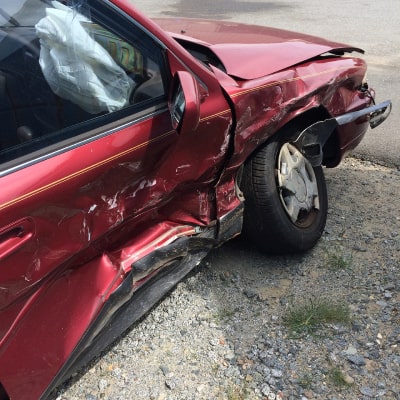Unfortunately, the United States witnesses over 5 million auto and light truck accidents due to various reasons every year. One of the main reasons is the use of cell phones while driving on the road. Apart from distracted driving, drivers also get into an accident due to drunk and reckless driving. Whatever the reason for the accident may be, you need to be very careful while on the road. If you regularly drive, you should be prepared to deal with an accident. Advance knowledge and preparation will prove to be of great help.
Hopefully, you will never be involved in a car accident. But if you are, you’ll need to have a plan in place for how to handle the situation, because such a thing can cause a lot of problems and delays in your life.
Common Causes of Auto Accidents
There are multiple reasons that can lead to car crashes/collisions. These causes can range from bad driving behavior to environment-related conditions. While on the road, it is crucial to keep all the focus on the road and not get distracted. Accidents are more likely to happen if the driver is speeding or taking over or passing other vehicles. Drunk driving is also a key reason for many auto accidents. Teenagers are also reported to engage in reckless driving, which often leads to collisions and crashes. Sometimes, drivers get involved in an accident because there were some issues with their tires, wheels, or brakes (i.e., poor maintenance or defective products).
Auto accidents can also happen due to poor conditions of the roads, such as potholes in the road. Weather conditions such as rain, snow, and fog limit a driver’s visibility. As a result of an obstructed view, vehicles either crash or collide with other cars, vans and trucks. Malfunctioning of signals and signs are some other common reasons which may lead to car accidents, so one needs to be extra careful crossing an intersection where the traffic signal is not working properly.
Key Steps to Take Immediately After an Auto Accident
Below are some of the crucial steps that you should take immediately after an auto accident.
Move Your Vehicle to a Safe Location
Injuries: If you or anyone involved in the accident appears to be injured be sure to tell the 911 emergency dispatcher someone is injured and how bad they appear to be injured, e.g., is someone unconscious, is someone bleeding from their head, someone is holding their leg and crying out in pain.
Call 911: Contact the police to report the accident and when they show up ask them to prepare a traffic collision report. The police or 911 operator will often ask if anyone was injured. If you say “no,” the police are not likely to show up to prepare a report. If you say “I don’t know, someone could be injured,” the police might show up. However, if you say “yes,” someone was injured, the police are likely to show up.
Take Photos: If you have a camera, make sure to take pictures of the damage to all vehicles involved, the scene of the accident, and all parties involved.
Exchange Information
Personal Information
Name
Phone Number
Home Address
Driver’s license Number
Auto Insurance carrier/policy number
Auto Information
Year of car
Make of car
Model of car
License plate number (including state)
Witness Information
Ask people that are nearby if they witnessed what happened and ask them what they saw and heard; and ask for their name and phone number.
DO NOT Admit Fault
Do not admit fault and do not accuse anyone else of being at fault. Just collect the information you need to help you make a claim and to prove that you were not at fault. Most of the time the other people involved will later deny fault even after admitting it verbally at the scene.
Take Notes – Document
It’s a good idea to write down details about the loss while it’s still fresh in your mind. Include as many details as possible, such as:
The direction the vehicles were traveling
How fast the vehicles were traveling
Did anyone apply their brakes, use their horn, or try to avoid the accident
What were the road conditions like, e.g., wet, dry, debris on the roadway, etc.
Was traffic heavy or light
Start an injury journal to note how you feel each day.
Tips for Talking to the Other Driver
Extra care must be taken when you converse with the other driver. Remember, your safety is the utmost concern here. If you believe road rage is the reason the auto accident happened, you should be very careful in regard to talking with the other driver. Get out of the car to talk, only when you are sure there is no danger. Talk to the other driver in a calm manner and if they are not calm tell them you will be waiting in your car until they are ready to talk.
Before you start talking to the other driver, also ensure all your valuables are safe and secure inside the car. Whether you or the other driver is at fault, you should never get angry and just blurt out any comments that you might later regret saying.
Avoid any kind of admissions or blaming other drivers who may be present at the scene of the accident. Never say that you are not injured and that you are feeling okay because many times people are in shock after an accident and they do not feel their injuries yet. Also, never say that your vehicle is fine because it could have internal damage that is not visible from the outside. If the other driver asks you about how you and the other passengers are, simply say that you plan on going to get checked by a doctor.
Most importantly, never fall prey to a handshake deal. Sometimes, the other driver may offer you a sum of cash to settle the matter. Accepting cash or making a deal with the driver may cause you to lose your right to make any future claims regarding your property damages or your bodily injury damages.
Start an Auto Insurance Claim
The purpose of auto insurance is to offer you financial protection in the event of an accident. One of the most crucial steps to take after an accident is to get in touch with the insurance carrier.
The auto insurance claim process should begin as soon as possible. To get started with the process, you should call your insurance company to report the accident. You can also contact the at-fault party’s insurance carrier to open a claim, but do not provide a recorded statement and only give minimal information such as the date, time, and place the accident occurred, and otherwise collect contact information and send the rest of the information regarding your claim in writing.
Don’t Talk to an Insurance Adjuster Unprepared
After you have informed your insurance carrier about the accident, the company will assign an adjuster to handle your case. In the other case, the adjuster from the other driver’s insurance company may also give you a call to record your statement. In both cases, you should proceed with care, and generally, you should not provide a recorded statement to the at-fault party’s insurance carrier.
If you have never talked to an adjuster before or you are not fully confident about talking to that person, you should seek professional help. It is a good idea to consult with someone who has expertise in such matters. Of course, a personal injury lawyer will be able to offer you expert advice and help to get you started in the right direction. Once you hire an auto accident attorney they will contact the adjuster and will be the contact for the adjuster from that point forward.
How an Auto Accident Attorney Can Help You
When dealing with an auto accident, you need to take each step with care. If you end up making mistakes, in the beginning, this will have a negative effect on your personal injury claim. With a lawyer by your side, you can concentrate on healing from your injuries while the lawyer handles all the legal matters in a professional manner for the best outcome.
At The Accident Injury Law Center (TAILC), we specialize in dealing with a wide range of auto accident and injury cases. If you were hurt in a car accident in or near Orange, CA, you can call us for a free consultation. We will help you right from the start and we will do our best to get you the compensation that you deserve.
Need Help with Your Legal Matter?
Call (714) 591-0661 to speak to a lawyer.


